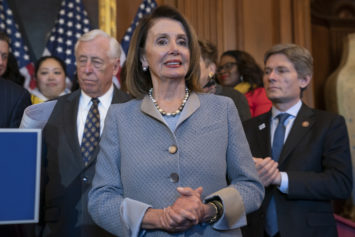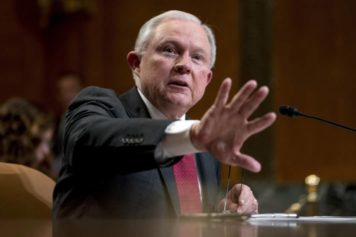
As the court deliberates and the experts begin to calculate the costs to the nation if nearly 10 million people were suddenly slammed by a change in the law, it is only natural to assume that the group with the most severe health problems would be hurt the most.
On most every measure that researchers use to quantify the state of the nation’s health, African-Americans are found to be in the most dire condition. Much of that is due to poverty, of course, but medical research has also unearthed the fact that a considerable amount of the comparatively poor health is due to the cumulative effects of racism—experienced in the everyday lives of African-Americans, in addition to many forms of personal and systemic racism in the healthcare system itself.
Therefore, the question of what happens to Black healthcare with a decision against Obamacare is not an esoteric exercise. In fact, it goes to the very heart of the healthcare debate for two reasons: Black healthcare is a large part of the reason for the white community’s virulent opposition to Obamacare; a failure to tend to the serious healthcare needs of the Black community will, in the long run, cost the nation a great deal of money.
After President Obama was elected in 2008 and he got serious about pushing for universal healthcare, the opposition began forming amongst Republicans. Researchers who delved into the opposition discovered that racism was a key factor. One study found that the higher individuals were on the implicit prejudice scale, the more likely they were to oppose healthcare reform.
In a different experiment, the opposition to healthcare among whites dropped dramatically when they were told the plan was attributed to Bill Clinton and not Obama. In effect, the racist masks were removed from all those who claimed that their opposition had nothing to do with their feelings about Black people.
Using an extensive list of code words, Republicans were able to convince their constituents that the Affordable Care Act was Obama’s secret handout to Black people—in other words, the living embodiment of their greatest fear, that this new Black president was going to find a way to give extra stuff to his folks.
So when we consider how a severe blow to Obamacare would impact the Black community, we have to recall that the Black community’s health is where much of the hatred of the plan started.
But above and beyond the politics of the law, Black people have the most to lose because Black people have the most severe health needs. A 2009 study by the Urban Institute, done before Obamacare was implemented, found that health disparities between Black people and white people cost nearly $20 billion a year to the healthcare system and to the Black community—more than $12 billion in excess costs for Medicare and Medicaid, $4.9 billion in excess costs for private insurers and more than $2 billion per year in out-of-pocket costs that Black people pay themselves.
After Obamacare was implemented, studies revealed that Black people suffered more than any other group by the decision of 23 states not to expand Medicaid coverage. A total of 1.4 million uninsured Black people are trapped in this eligibility gap—they make too much money to qualify for traditional Medicaid, but they don’t make enough to qualify for the federal subsidies. These 1.4 million people constitute 23.1 percent of the national Black adult uninsured population.
But even with that large number of Black people sitting in the gap, Obamacare still reduced the number of Black people in the country without health insurance by 42.3 percent, according to a 2014 study by the Urban Institute. Of course, were these recalcitrant states—many in the South—to cooperate and expand Medicaid, the numbers would look even better: there would be a 63.2 percent decrease in the number of Black people without insurance, leaving just 7.2 percent of the Black community without it.
Stashed inside those numbers in the millions are individual, heartbreaking stories of Black families whose lives were dramatically changed, whose levels of stress and strife significantly reduced, when health insurance entered the picture. Advocacy groups and media outlets have tried mightily in the weeks leading up to the Supreme Court arguments to accurately capture the human scale of the court’s deliberations.
There are political costs attached, for President Obama and for many groups and lobbyists who have much at stake.
But beyond the politics, this is particularly meaningful for the folks who most need the nation to attend to their healthcare needs. That would be Black people.

